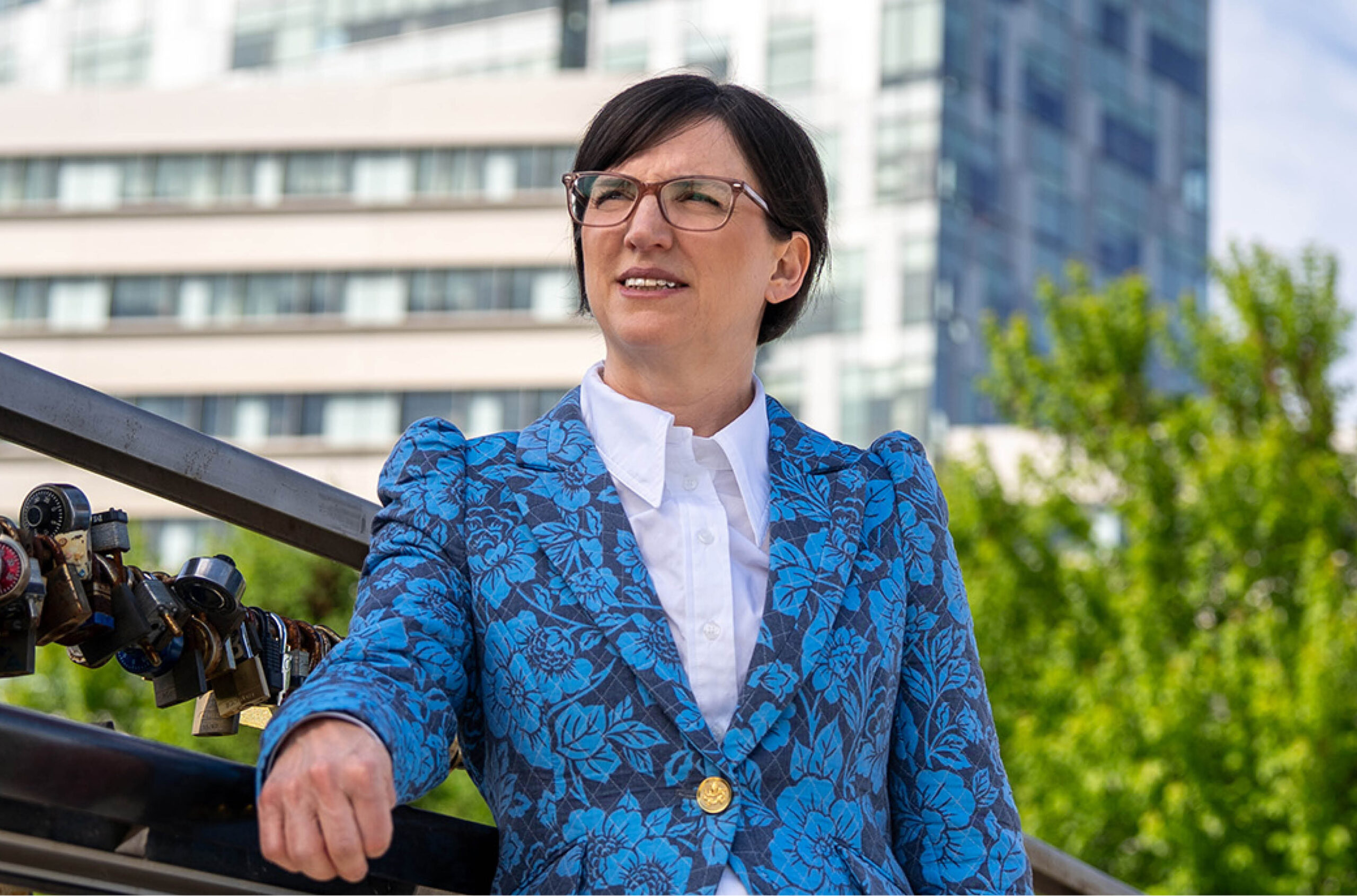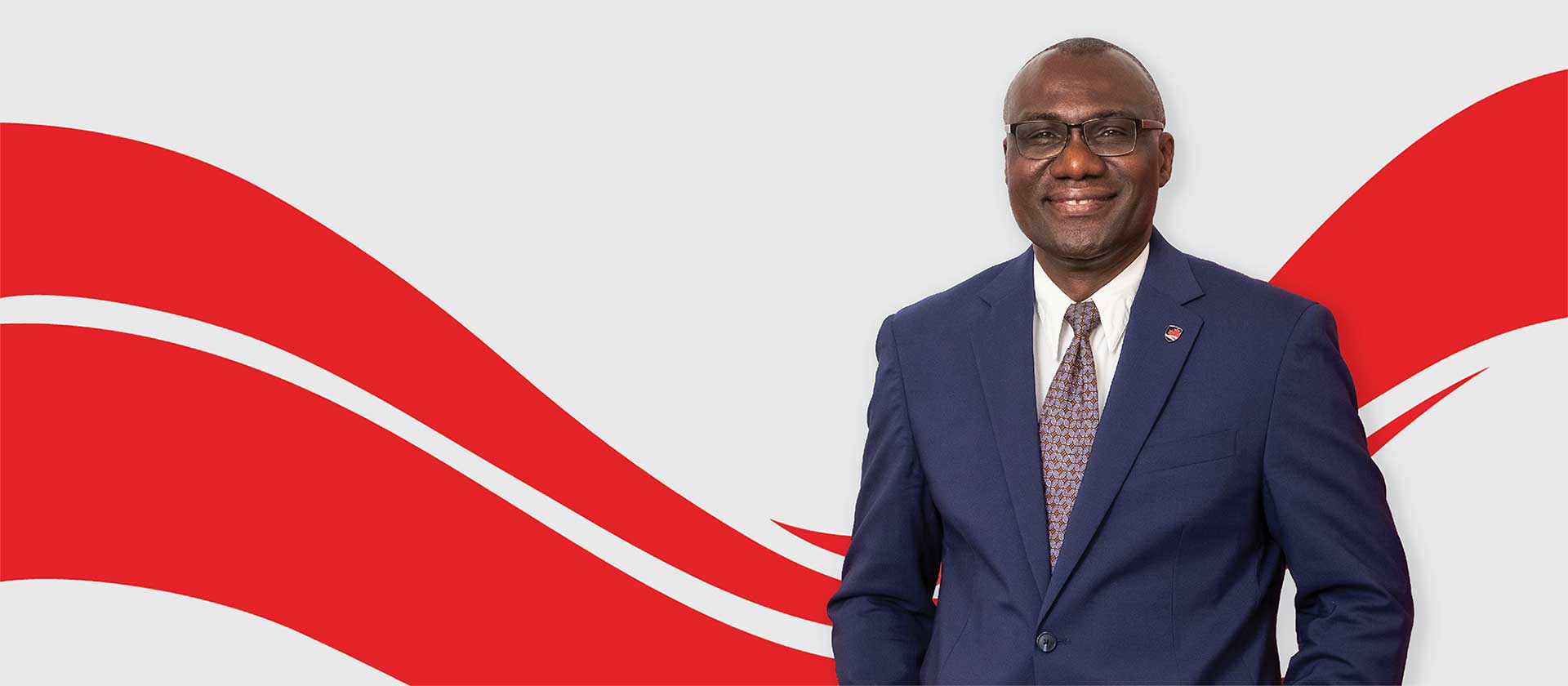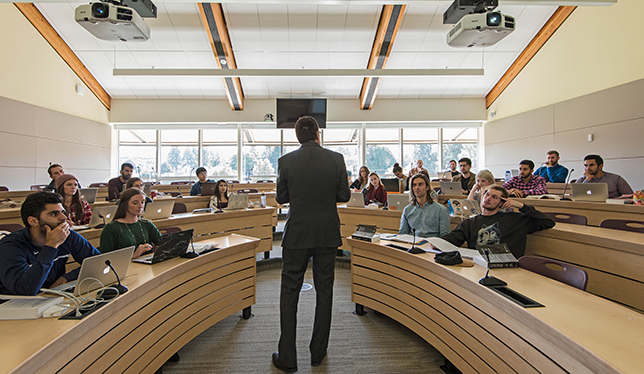Surviving your first year on the tenure track
It is important to identify your support network, set boundaries, and define success for yourself.

This post is sponsored by the CIFAR Azrieli Global Scholars program, which provides funding, mentorship and support to help early career researchers build their network and develop essential skills. To learn more and apply to become a member, please visit www.cifar.ca/global-scholars

Starting a tenure track job is kind of like becoming a parent. You can plan all you want for the big day and the months that follow, but there are many unknowns, and multiple competing interests. In the end, it’s not a very plannable thing. Every baby is different, and no one can really explain parenthood to you in a way that you will truly understand. The same is true of a tenure track job. You will do your best, hope for the best, and in the end, que sera, sera.
I can compare the two experiences because I gave birth to my daughter three days after I defended my PhD thesis (most productive week ever!). Then I started a tenure track job with a 7-month-old. While I am lucky to have a very supportive partner who made that crazy year much easier, my first year on the tenure track was challenging.
I vividly remember rushing across campus to teach after leaving early from a grant writing workshop (at which I had wrongly assumed there would be lunch, rather than just a bag of chips for 12 faculty). I arrived to class a sweaty, hungry mess. That day, as I wrote code live in front of 160 students, it became clear I had a bug. On a better day, I might have turned it into a teaching moment, but in my hungry, rushed state I panicked. The classroom got louder and louder as I desperately searched for my error. Then, just as I found my mistake, the class was over. Returning to class after that episode was tough. But, just like with parenting, there’s no throwing in the towel. Every day you do your best, and eventually, with time, you get better. Looking back on that year, there are three things that helped make it a little easier.
Identify your support network
Who will you lean on for support? Who can you call when you write buggy code in front of 160 people? Look into mentoring programs at your new institution, and take advantage of them. Look to people in your research community or grad school cohort. Plan ahead. Put them on your speed dial. I was lucky to be assigned a wonderful mentor, but also to find some unofficial cheerleaders at my home institution. I found some of them through social events on campus, especially during new faculty orientation. If you can help it, don’t skip those social events. This is where you will meet people who will go through the same struggles as you, alongside you.
Set boundaries
Having a young child has made me much more intentional about the time I spend at work. I have certainly worked evenings and weekends (especially in my first year), but I do not do it lightly. If I take a few hours on a Sunday to work on a grant, those are going to be solid working hours. But, you don’t need a child to make those decisions for yourself. Your time away from work is as important as your hours at work. It refreshes you, revives you and makes you better focused when you return to work.
Define success for yourself
Academia is full of feedback, and it often comes in the form of negative paper reviews, grant rejections, and lackluster teaching evaluations. You need to set your own goalposts, and not wait for someone else to congratulate you. If you can find a way to be proud of your work upon submission, rather than upon acceptance, you will find more opportunities to celebrate. After all, there is a lot of noise in the paper review system (here’s evidence from Computer Science, if you need cold hard numbers). Some days the coin flip is in your favor, and other days it is not. Let the work be its own reward.
Of course, all of these things are easier said than done. Some weeks I’m good at setting boundaries and staying positive in the face of paper rejection. Many weeks I am not. It has helped me to think of the tenure track as a seven-year post doc, to try and enjoy the gift of the academic job from the very beginning, and to not put off fun things until after tenure. A tenure track job is an amazing gift, but no job is worth losing sight of what is important to you.
 Alona Fyshe is an assistant professor in the computer science department at the University of Victoria and a CIFAR Azrieli Global Scholar. Alona received her BSc and MSc in computing science from the University of Alberta, and a PhD in machine learning from Carnegie Mellon University. Alona uses machine learning to leverage large amounts of text and neuroimaging data to understand how people mentally combine words to create higher-order meaning.
Alona Fyshe is an assistant professor in the computer science department at the University of Victoria and a CIFAR Azrieli Global Scholar. Alona received her BSc and MSc in computing science from the University of Alberta, and a PhD in machine learning from Carnegie Mellon University. Alona uses machine learning to leverage large amounts of text and neuroimaging data to understand how people mentally combine words to create higher-order meaning.




Post a comment
University Affairs moderates all comments according to the following guidelines. If approved, comments generally appear within one business day. We may republish particularly insightful remarks in our print edition or elsewhere.